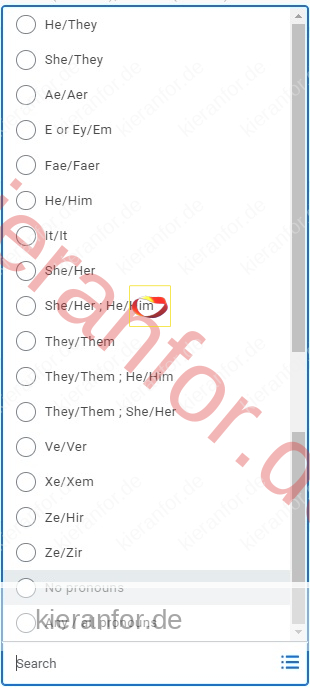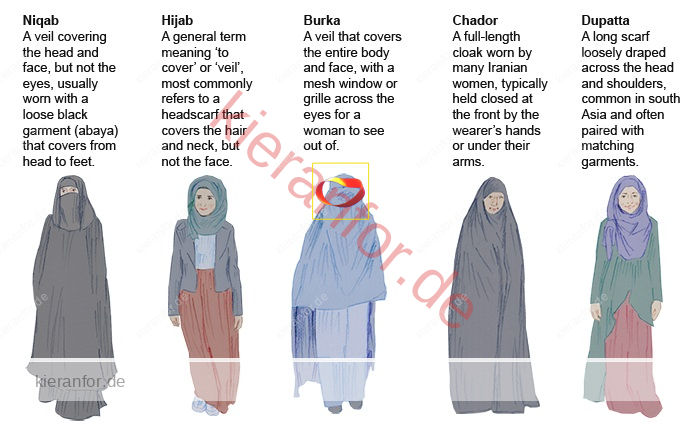Header image: Source
The video below is an early (2022) version of this presentation. It has since evolved into a more considered and impactful piece, as I’ve learned more about the history, cases, and nuances involved. Still, it’s not a bad place to start as an overview.
∞
Notwithstanding Clause
(Jan 14, 2012) What is the notwithstanding clause? An explainer on the rarely used provision
https://www.cbc.ca/news/canada/toronto/ontario-notwithstanding-explainer-1.6065686
∞
(April 15, 2025) Poilievre says he’d pass a law that overrides a Charter right. That would be a first for a PM
https://www.cbc.ca/news/politics/pierre-poilievre-notwithstanding-clause-1.7509802
- On Monday, Poilievre promised to use the notwithstanding clause to impose consecutive life sentences on multiple murderers. The Supreme Court of Canada ruled in 2022 that imposing consecutive life sentences violates an offender’s Charter rights.
- The clause can only override certain sections of the Charter — including Section 2 and sections 7 to 15, which deal with fundamental freedoms, legal rights and equality rights — but can’t be used to override democratic rights.
- The clause has been used at the provincial level, including by Saskatchewan, Quebec and Ontario, but no federal government has ever used the clause to pass a law.
∞
(Sept 26, 2024) Democracy’s Sledgehammer: The Use of the Notwithstanding Clause for Saskatchewan’s Bill 137, “The Parent’s Bill of Rights”
https://www.schoolofpublicpolicy.sk.ca/research-ideas/publications-and-policy-insight/policy-brief/bill-137.php
- UR Pride filed an action against the Government to halt the policy, contending it could have detrimental effects on trans, non-binary, and gender-diverse students.
- UR Pride requested an injunction to delay the implementation of the policy. On September 19, 2023, the injunction was granted by Justice Megaw of the Court of King’s Bench.
After the injunction was granted, the Saskatchewan government indicated that it would invoke the notwithstanding clause from the Canadian Charter of Rights and Freedoms in order to pass Bill 137, or the “Parents’ Bill of Rights,” replacing the policy with legislation in order to circumvent the court-ordered injunction.
- The “Parents’ Bill of Rights” was passed into law on October 20, 2023
The legislation triggered ardent debate around the rights of parents to have a say in relation to gender identity, expression, and sexual health education in schools and the rights of adolescents under the age of 16 to make decisions about their gender identity and expression in school without their parents’ knowledge or consent.
- The Court of King’s Bench ruled on February 16, 2024, that the UR Pride Centre may proceed with its lawsuit against the Government of Saskatchewan despite the government’s use of the notwithstanding clause to pass the bill.
- Regarding names and pronouns, the legislation outlines that when a student under 16 desires to be recognized by a “gender-related preferred name or gender identity,” school employees must obtain parental consent before accommodating this request.
- This is known as the “outing requirement.”
- If obtaining such parental consent could potentially harm the student, the school’s principal is tasked with guiding the student toward qualified professionals. These experts are then responsible for formulating a strategy to safely engage the parents on the matter, ensuring the student’s well-being is prioritized while navigating these sensitive discussions. However, even if the process is deemed unsafe, parental consent is ultimately required.
- Where parental/guardian consent is absent for a student under 16, the bill imposes the “misgendering requirement,” or the use of incorrect pronouns and language to refer to the student.
Once used, the notwithstanding clause can only last for five years before the government is required to pass the law again through the legislature if they want it to continue. Charter rights not named in the clause will continue to apply.
- The use of the notwithstanding clause to override Charter protections, especially in a pre-emptive manner before the legislation has been tested in court, risks damaging Canada’s reputation as a global leader in human rights
(April 14, 2025) Community Outraged After Florida Teacher Loses Job For Calling Student By Preferred Name
https://www.comicsands.com/florida-teacher-preferred-name
- The student had asked to be called a name that aligned with their gender identity. Calhoun doing so is a violation of Florida state law, however, which requires parental consent to use a preferred name, even if it’s just a nickname.
(Mar 25, 2025) Quebec bill would expand religious symbol ban, force students to uncover faces
https://archive.is/cyIXW#selection-3556.0-3556.3
- A bill tabled Thursday would prohibit anyone who works in a school or on school property from wearing a religious symbol — including a hijab or a turban — on the job.
- It would also forbid students and staff from wearing face coverings.
- i.e. Niqab
- The new bill would update the province’s Education Act to apply the ban to all public school staff, including daycare workers, school psychologists and cafeteria workers.
- …following an investigation of Montreal’s Bedford elementary school.
- Premier François Legault dubbed the Bedford affair an attempt to “introduce Islamist religious concepts into a public school.”
The legislation would also require schools to evaluate teachers annually, and it would expand the requirement for employees at French-language schools to speak only in French with students and staff.
∞
(May 29, 2024) [Quebec] Bill 21 and the Notwithstanding Clause: What Consensus?
https://centre.irpp.org/research-studies/bill-21-and-the-notwithstanding-clause/
- Following the Quebec Court of Appeal’s decision on Feb 29, 2024 to uphold the validity of Bill 21, the Act Respecting the Laicity of the State, it will now be the Supreme Court’s turn to decide. The country’s highest court will no doubt also have to consider the Quebec government’s use of the notwithstanding clause to protect the provisions of Bill 21 that might contravene the Canadian Charter.
- Premier Legault might be eager to present Bill 21 as the result of a consensus, but in reality the Quebec population is rather widely divided on various issues like the principles of secularism and who has final say on the constitutionality of laws. But it is especially divided on banning religious symbols for public school teachers and the use of the notwithstanding clause.
∞
(Mar 2, 2006) Ban on Sikh kirpan overturned by Supreme Court
https://www.cbc.ca/news/canada/ban-on-sikh-kirpan-overturned-by-supreme-court-1.618238
(n.d.) Canada’s gender identity rights Bill C-16 explained
https://www.cbc.ca/cbcdocspov/features/canadas-gender-identity-rights-bill-c-16-explained
the changes brought forth by Bill C-16 do not mention pronouns
Passed in June 2017, Bill C-16 has become part of a larger conversation surrounding gender, pronoun use, freedom of speech, and the rights of transgender and gender-diverse Canadians. What changes, exactly, are in the new law?
Bill C-16 added the words “gender identity or expression” to three places.

- First: It was added to the Canadian Human Rights Act, joining a list of identifiable groups that are protected from discrimination.
- These groups include age, race, sex, religion and disability, among others.
- Second: It was added to a section of the Criminal Code that targets hate speech — defined as advocating genocide and the public incitement of hatred — where it joins other identifiable groups.
- Third: It was added to a section of the Criminal Code dealing with sentencing for hate crimes.
- If there’s evidence that an offence is motivated by bias, prejudice or hate, it can be taken into account by the courts during sentencing.
Which pronouns are expected to be used?
- According to the OHRC’s website: “Generally, when in doubt, ask a person how they wish to be addressed. Use ‘they’ if you don’t know which pronoun is preferred. Simply referring to the person by their chosen name is always a respectful approach.”
- The OHRC states that refusing to do so may be considered discriminatory, a clarification that was released after the debate started. (See the full statement).
- KF: decline / refuse; invite / demand
“(Bill C-16) really was just bringing the federal human rights code into accordance with what has already been protected provincially,” she says. “Most public services, most industries would have already been covered under the provincial legislation.”
Interculturalism v Multiculturalism
Joppke, C. (2018). War of words: interculturalism v. multiculturalism. Comparative Migration Studies 6(11). https://doi.org/10.1186/s40878-018-0079-1

Louie, D. W. (2024). Barriers to Engaging with Reconciliation in Canadian Education: Confusing Colonial and Western Knowledge. Canadian Journal of Education Revue Canadienne De l’éducation, 47(2), 466–491. https://doi.org/10.53967/cje-rce.6325
- “St. Denis (2011) challenges multiculturalism by claiming it does not address racism in our society and that Indigenous people are not simply just one amongst a myriad of cultures in the Canadian context.”
For Laura
- (Mar 13, 2025) Louisiana Department of Education adjusts framework to reflect Gulf of America name change
https://www.shreveporttimes.com/story/news/education/2025/03/13/louisiana-schools-update-gulf-of-america-in-4th-and-5th-grade-curriculum/82365647007/ - (Jan 27, 2025) Florida educators, students speak out against curriculum changes
https://abcnews.go.com/US/florida-educators-students-speak-curriculum/story?id=118136219 - (May 9, 2023) Changes to Alberta’s Education Curriculum Driven By American ‘Culture War’ Politics and the Religious Right, Experts Say
https://pressprogress.ca/changes-to-albertas-education-curriculum-driven-by-american-culture-war-politics-and-the-religious-right-experts-say/ - (July 1, 2022) Moscow forcing teachers in occupied Ukraine to follow Russian curriculum
https://www.theguardian.com/world/2022/jul/01/moscow-forcing-teachers-in-ukraine-to-sign-up-to-russian-curriculum


